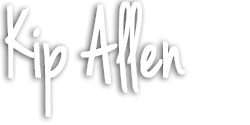Let’s talk about drum recordings!
Traditionally, the most difficult part of home recording, or recording in a studio, has been the drum kit. Many home recorders have achieved studio-quality guitar, bass, and keyboard recordings, yet strike out on the drums. But with the right equipment and disciplined technique, it is absolutely possible for a session drummer or studio drummer to get great drum sounds without shelling out for a high-end studio.
Even in a studio, drum recordings can be problematic at best and downright difficult at worst, even for the best production team.
Having said all that, there is hope!
Let’s look at some of the specific steps to take when you are preparing for a drum recording session.
Before going into the studio
Limber up! Go through some “get loose” exercises. After you are loose, practice the piece you are recording. Go over it in your mind. Preparation is a huge component when piecing together a quality drum recording.
Do your pre-homework
What drum equipment will you be using as a touring musician in the recording studio? Is everything in working order? Do you have extras in case something breaks during recording?
Again, are you comfortable with the piece you are about to record? Could you literally play it “in your sleep?” Make sure you’re comfortable with the songs well before you get to the studio… Doing things the correct way, especially early on in your recording career, will set you on the path to becoming a drum recording master.
Record yourself during practice
I think this is such an important step to incorporate into your routine. Go through the piece, in practice, and record it. Play it back and listen carefully. Does it sound like what you had in mind? What could be strengthened? What techniques might work best played another way?
Work on tempo
The actual recording session is not a time to work on tempo. Tempo practice, and tempo perfection, happen before the recording session. The tempo for the piece should become second nature for you before the lights come on and the recording machinery powers up.
Topnotch equipment means topnotch sound
Yes, it’s true, a great musician can create a great sound using subpar equipment, but it is also true that outstanding drum equipment, like DW Drums, will enhance the already outstanding sound of a professional drummer. Will you pay extra for top-of-the line drums? Yes! Is it worth the cost? Most definitely!
Look at it this way: you are about to be recorded for posterity. Don’t you want that recording to have the absolute best sound possible? That can only be accomplished by using the absolute best drumming equipment.
Have a plan before you start
Yes, this is a repeat! I feel that strongly bout pre-recording preparation. Yes, the best drummers can “wing it” during a session, but what sounds like improv to an untrained ear is actually hours and days and weeks of honing one’s craft in practice sessions.
Have a plan, practice that plan, and then execute that plan in recording.
Even if your plan is to record the drums alone, it can be very helpful to have several other bandmates playing along with you in a different room. This is a professional technique I use often to keep in touch with the vibes of a song, and to keep track of where I am while recording. Check with the studio if you want to do this – they should be able to set this up for you. As a bonus, you can easily record the other instruments, and keep them if they’re good takes.
About Kip Allen
As a Drum Workshop Artist based in Nashville, TN, Kip Allen spends the majority of his time behind the drum kit. From touring the world as a touring musician with artists (Devin Dawson, The Wolfe Brothers, Paul Childers) to spending time in the recording studio (Dark Horse album by Devin Dawson, “We Got Close” by The Wolfe Brothers, “Sanctuary” by Emma Rowley, “Guilty” by Sean C Kennedy, “Perfect World” by Phil Vassar), he continually crosses a wide array of musical styles.
Alongside drumming, Allen is a music producer for his own project as well as for other artists (Trev Leigh, Emma Rowley). As a songwriter, he has been credited on songs such as “We Ain’t Going Anywhere” by The Wolfe Brothers, “In My Head” by Trev Leigh, and “Sanctuary” by Emma Rowley.
